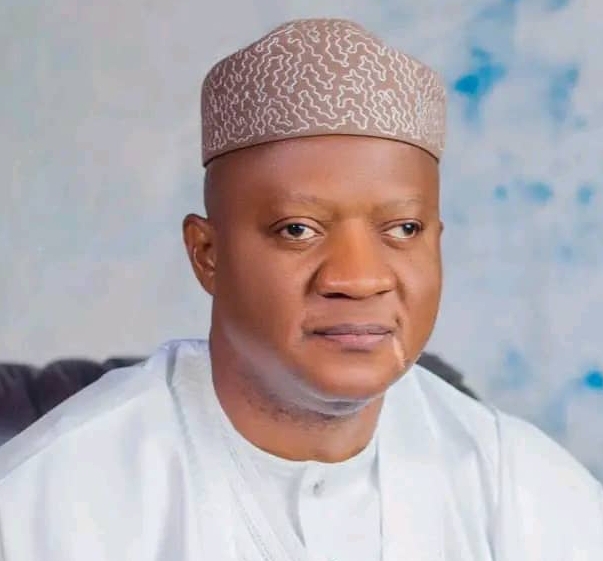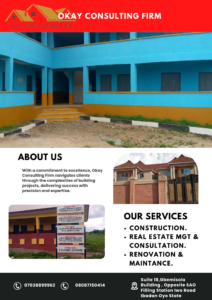How Oyo State Can Unlock the Informal Economy for Sustainable Prosperity — Barr Akeem Agbaje

As conversations around economic revival and inclusive governance gain momentum ahead of 2027, a chieftain of the All Progressives Congress (APC) and 2027 gubernatorial hopeful, Barr. Akeem Agbaje, has restated the pressing need to unlock the economic potential of Oyo State’s informal sector and Micro, Small, and Medium Enterprises (MSMEs) as a pathway to sustainable prosperity and mass empowerment.

Speaking during a policy dialogue with entrepreneurs, market leaders, artisans, and youth innovators across Oyo State, Barr. Agbaje described the informal economy as “the heartbeat of Oyo,” noting that real transformation must start with the people who drive the local economy daily, yet remain excluded from structural support and state planning.


According to him, more than 500,000 informal businesses and MSMEs across the state account for over 70% of the workforce and contribute significantly to job creation and value generation. These include traders, mechanics, tailors, Keke riders, digital freelancers, and agro-processors.
“We keep importing economic models that ignore our reality. The engine of our economy is not in elite boardrooms, it is in Dugbe markets, Bodija shops, Saki’s farm clusters, and the tailoring hubs in Oje. That’s where the real work is done, and we must empower them.”

Barr. Agbaje noted that many of these businesses operate under harsh conditions, facing multiple taxation, limited access to credit, poor infrastructure, and no formal recognition. He maintained that, if elected, his administration would implement a MSME and Informal Sector Inclusion Framework (MISIF) to ignite local prosperity and integrate informal actors into the state’s long-term development blueprint.
Key Pillars of the MISIF Framework
1. Electricity First: Powering Growth at the Base
At the top of the framework is the provision of stable and accessible electricity, which Agbaje described as critical to the survival, productivity, and expansion of MSMEs and informal businesses.
“No meaningful economic activity can thrive without stable electricity. It is the lifeline of modern enterprise. From cold rooms to tailors’ machines, welders, barbers, printers, agro-processors, power is everything,” Agbaje stressed.
Drawing on his wealth of experience in the energy sector, Barr. Agbaje said he would implement a tested energy delivery template anchored on:
Public-private partnerships to attract investment in mini-grid systems;
Smart energy deployment through solar hubs and smart metering in markets and clusters;
Grassroots Power Projects to directly energize artisans, traders, and rural processors.
He added that these initiatives would be tied to local job creation and energy sustainability while aligning with national power reforms.
2. Grassroots Enterprise Credit Scheme
Provision of low-interest loans and matching grants to nano and micro enterprises, disbursed via registered cooperatives, trade unions, and women associations, to boost working capital and business expansion.
3. Business Formalization Incentives
Free CAC registration, streamlined documentation, tax reliefs, and simplified compliance protocols for nano and small businesses willing to register and operate within formal structures.
4. Cluster-Based Infrastructure Development
Establishment of shared production centers, solar-powered markets, mini-industrial parks, and storage hubs to address location-based barriers to productivity.
5. Unified Local Tax Reform
Creation of a transparent and consolidated tax system, replacing multiple levies with a business-friendly single payment model, monitored digitally to reduce extortion and overregulation.
6. Youth Enterprise Support Hubs
Tech and innovation centers across Ibadan and other major towns to offer digital training, business incubation, mentorship, and seed funding to young entrepreneurs, creatives, and startup founders.
Agbaje emphasized that economic inclusion is not a token but a duty, noting that prosperity must be designed with the people who sustain daily life in Oyo State in mind.
“We must move from mere acknowledgement to real integration. Real prosperity cannot happen when the majority are excluded. What I propose is not charity; it is justice, and it is smart economics.”
The illustrious son of Ibadan from the respected Agbaje La’yeye family, emphasized the need for strong synergy between the government, private sector, and civil society, especially in infrastructure delivery and access to logistics, finance, and digital markets.
He praised the foundation laid by institutions like the Oyo State Investment and Public-Private Partnership Agency (OYSIPPPA) and the Oyo State SME Development Agency (OYSEDA), while calling for their strengthening and expansion to match the scale of the economic challenges and opportunities ahead.
Concluding, Barr Akeem Adedeji Agbaje promised that his administration would institutionalize platforms where artisans, cooperatives, traders, and informal sector leaders can co-create policy, ensuring that governance reflects the voices and priorities of the real economy.
“A progressive economy is one where every hand is valued. We must build an Oyo State where the smallest trader is not left behind, where enterprise is not a privilege, but a right supported by thoughtful governance.”

